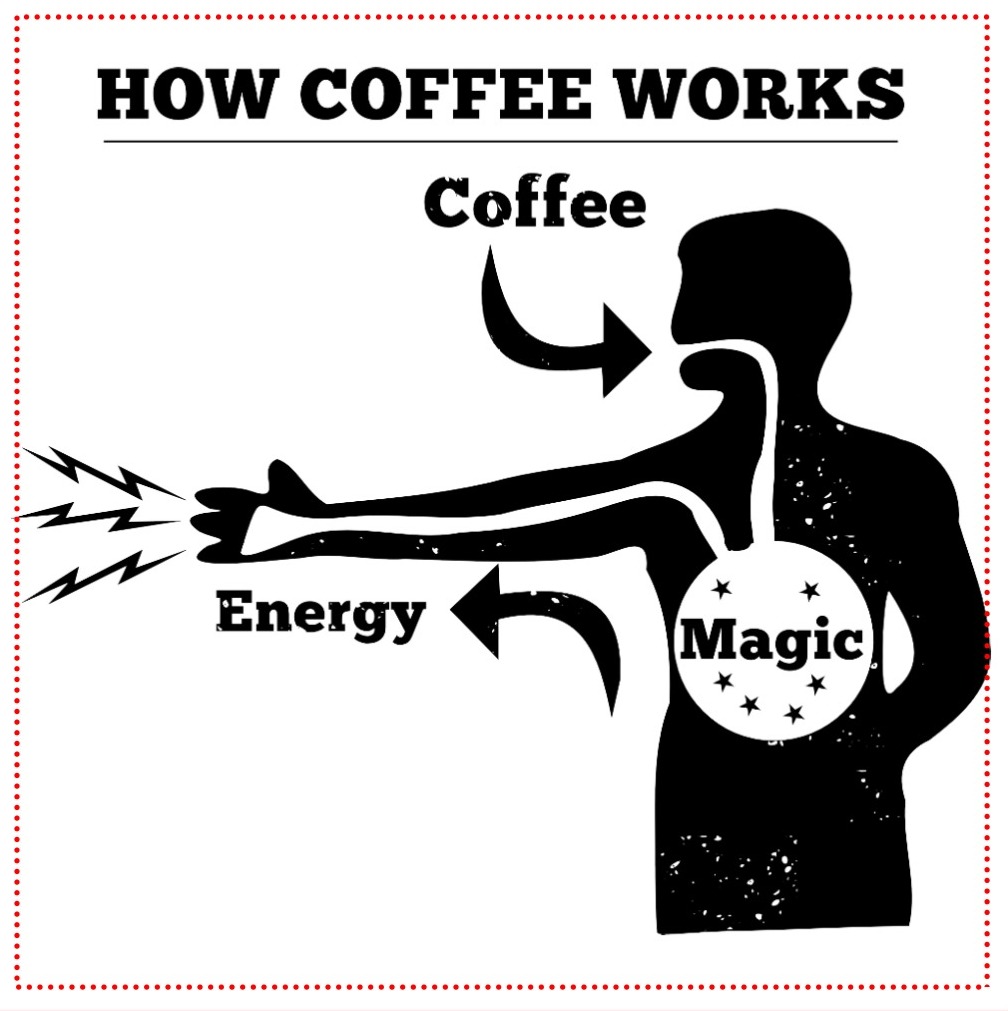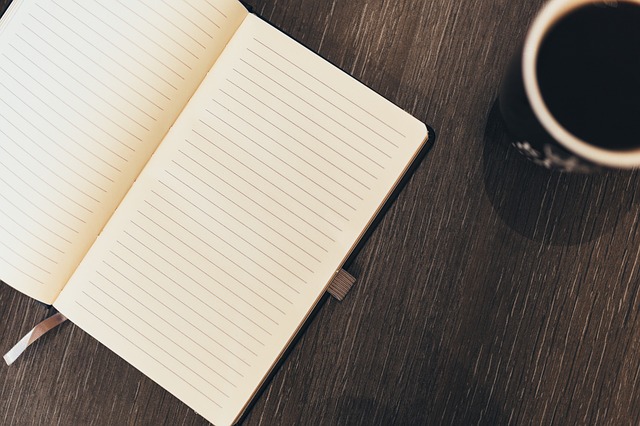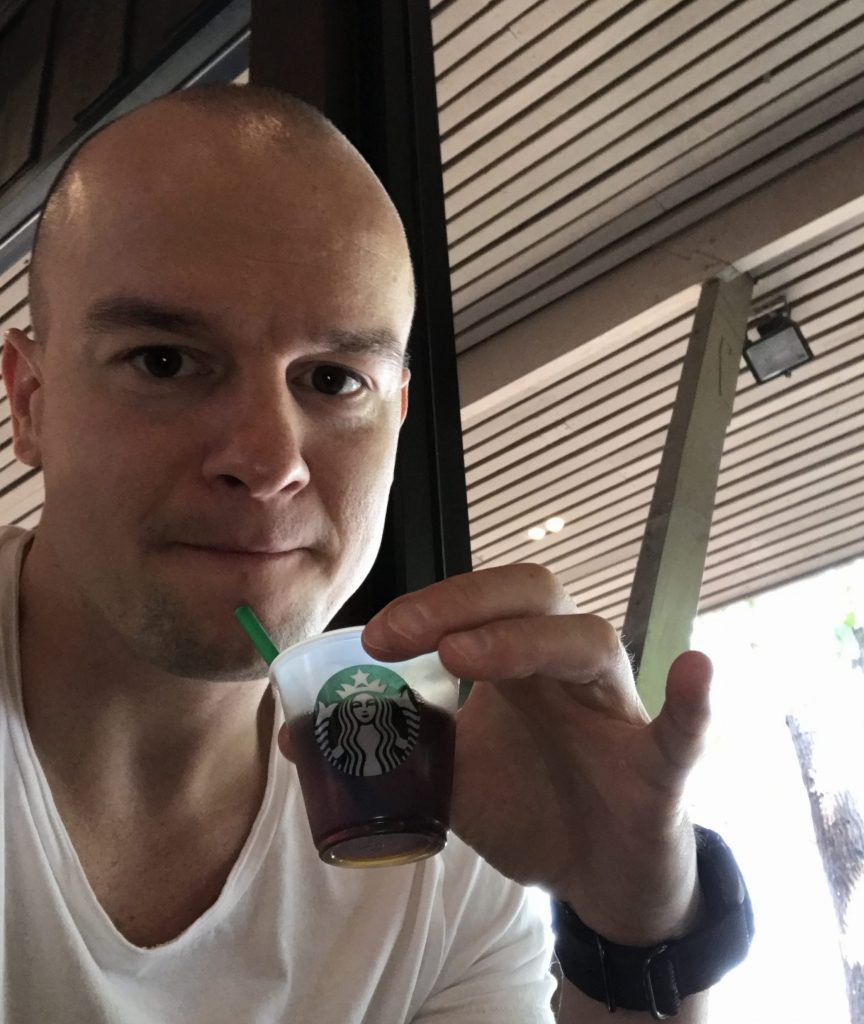
“It’s Saturday?” I asked.
“Yeah it’s Saturday, what do you think?” My buddy replied.
“I don’t even know what I’m thinking anymore…”
And that was about as accurate a statement as I’ve ever made. After weeks of pounding coffee like a 48-year-old Serbian truck driver it finally had gotten the better of me.
What happened, you ask?
A couple weeks ago I started working on a novel project and felt like I needed an extra boost to keep up with the demand. I upped my coffee intake from the usual 2-3 cups (approx. 250-450 mg caffeine) to 4-5 per day, while simultaneously cutting down on sleep.
2 weeks went by in a moment’s notice.
And looking back on those two weeks, I don’t really remember much. The extra jolt quickly backfired on me and I found myself needing to keep the juice flowing just to stay awake.
I was wired but never felt fully awake. My mind was in a haze. I was anxious, confused and very irritable (WARNING: highly flammable). Unsurprising, as I made every mistake in the book. But you don’t have to go down that road.
Enter the ultimate guide to drinking coffee.
Is coffee bad for your health?
Far from it.

Coffee actually has a host of health benefits, backed by a large body of research. Regular coffee drinkers frequently display:
– better appetite control and body composition
– reduced levels of oxidative damage
– lower incidence of Parkinson’s and Alzheimer’s disease
Most of the negative effects associated with coffee consumption are either due to abuse, genetic sensitivity, or using synthetic caffeine (i.e. energy drinks, supplements, caffeine pills) instead of the real deal.
Coffee can definitely be considered a health beverage. There are good and bad ways of going about your caffeine fix, however. And if you’re like most habitual coffee drinkers out there you’re currently doing it wrong.
Here’s how you get the most from the elixir of life.
1. Don’t drink coffee after rising
Do you roll out of bed every morning reaching straight for your first pot of coffee? Don’t.
Your cortisol levels are naturally highest in the early morning hours (peaking between 7-9 AM). Since coffee also raises cortisol, it interferes with your body’s own production of the stress hormone.
This double whammy comes with considerable downsides. Drinking coffee right after waking will increase your tolerance to caffeine while promoting a subsequent crash. You end up needing more coffee to get the desired effects.
A cup of coffee consumed within the hour of waking is much less effective than one sipped later in the day. Don’t take my word for it, test this on yourself.
Instead of slamming your first cup of black dynamite immediately after rising, hydrate properly (water is your friend), have a bite to eat (if you eat breakfast) and wait 2-3 hours before having your first dose of caffeine. You’ll get a better buzz without the crash.
2. Drink coffee strategically

Coffee’s effects on the human body are manifold.
Coffee supports fat-loss by increasing lipolysis (the release of fatty acids for energy) and insulin sensitivity. It will also help you smash records in the gym by improving mental focus, reaction times, coordination and power output.
Coffee is also referred to as the “writer’s drug” as it boosts cognitive abilities and creativity. Not too shabby for a calorie-free beverage.
Drinking coffee randomly throughout the day will not take advantage of these effects, however. You want to use coffee strategically, not chronically.
Want to ignite your body’s fat-burning machinery? Consume coffee (black, no sugar) on an empty stomach, preferably before physical activity.
For better carbohydrate tolerance and nutrient partitioning, have a cup with your bowl of oatmeal or before crushing the box of glazed donuts you “bought for the kids”. [Tim Ferris, author of The 4-Hour Body, always drinks a cup of coffee with a dash of cinnamon before indulging in his weekly cheat meals.]
Coffee is one of the most prominent and most powerful performance enhancers available. Lowering the pain threshold, increasing max strength and resistance to fatigue are but a few of the effects caffeine has on athletic performance.
The bump in mental acuity seen after coffee consumption also promotes better mind-muscle connection and coordination. Combine that with some high-energy music for the workout of a lifetime.
And if none of the above matter to you, the dark brew also enhances mood and well-being (drinking moderate amounts of coffee cuts suicide risk in half).
3. Limit your consumption

2-3 cups per day max.
Coffee quickly loses its magic once you start abusing it. Enjoy and savor your romance with the black goddess, but don’t overstep your boundaries.
If you need more than 2-3 cups per day, take a look at your diet and sleep protocol first. Fix the holes in your game and don’t expect coffee to do that for you. Personally, I will never venture beyond 3 cups again.
4. No coffee after 4 PM
Caffeine, the main psychoactive stimulant in coffee, has a half-life of about 6 hours (up to 9 hours).
Ingest a large cup of coffee containing approximately 200 mg caffeine at 3 PM and you’ll still have half of that caffeine load in your system by 9 PM (and still another 50 mg by 3 AM).
People frequently tell me how they’re immune to the effects of coffee and that drinking it at night doesn’t sabotage their sleep.
It does.
You’re just in too deep to register it. “Not feeling” the pot of coffee you had for dinner isn’t something to brag about.
At a time when your body is meant to rest, recover and rebuild, artificially elevated stress hormones are keeping you in a state of emergency. You’ll have a hard time entering the deep (REM) stages of sleep, short-circuiting your ability to recover and regenerate.
Moderate your intake and stop mindlessly pounding cup after cup. You’re slowly burning out, just waiting for the big crash.
Caffeine is a powerful drug. Consumed strategically and responsibly, however, its benefits far outweigh its short-comings. Know why, when and how to indulge and make drinking coffee great again.
Thank you for reading
Victor
Resources
Mure K, Maeda S, Mukoubayashi C, Mugitani K, Iwane M, Kinoshita F, Mohara O, Takeshita T. Habitual coffee consumption inversely associated with metabolic syndrome-related biomarkers involving adiponectin. Nutrition. 2013 Apr 16.
Hernán MA, Takkouche B, Caamaño-Isorna F, Gestal-Otero JJ A meta-analysis of coffee drinking, cigarette smoking, and the risk of Parkinson’s disease. Ann Neurol. 2002 Sep; 52(3):276-84.
Pesta, D. H., Angadi, S. S., Burtscher, M., & Roberts, C. K. (2013). The effects of caffeine, nicotine, ethanol, and tetrahydrocannabinol on exercise performance. Nutrition & Metabolism, 10, 71.
Arendash GW, Schleif W, Rezai-Zadeh K, Jackson EK, Zacharia LC, Cracchiolo JR, Shippy D, Tan J. Caffeine protects Alzheimer’s mice against cognitive impairment and reduces brain beta-amyloid production. Neuroscience. 2006 Nov 3; 142(4):941-52.
Lovallo, W. R., Whitsett, T. L., al’ Absi, M., Sung, B. H., Vincent, A. S., & Wilson, M. F. (2005). Caffeine Stimulation of Cortisol Secretion Across the Waking Hours in Relation to Caffeine Intake Levels. Psychosomatic Medicine, 67(5), 734–739.
[…] shit done for years. But I hadn’t learned how to strategically use music for my purposes, like I use coffee or other performance enhancing […]